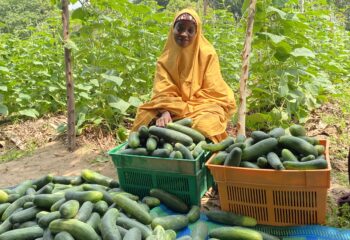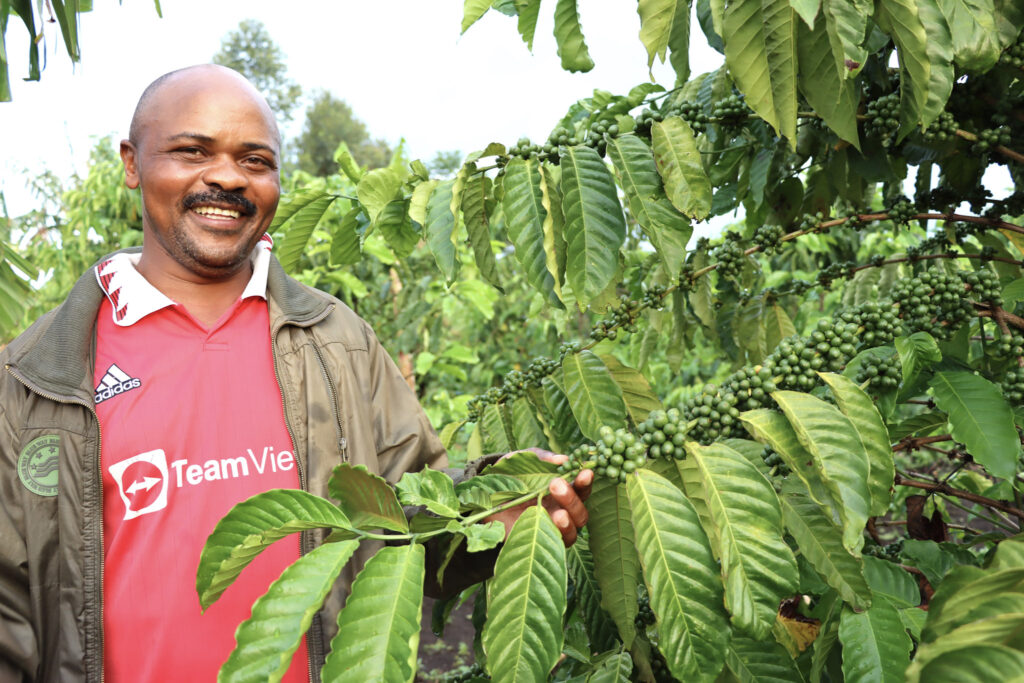
In Uganda’s coffee-growing regions, cooperatives are playing a critical role in strengthening the livelihoods of small-scale farmers.
The Building Resilience and Inclusive Growth of Highland farming systems for rural Transformation (BRIGHT) project, implemented by IFDC in cooperation with partner organizations, local governments, and the private sector, is at the fore of these advancements.
At the heart of BRIGHT’s initiatives is its support for cooperatives, such as Karangura Peak Modern Coffee Farmers’ Cooperative Society Limited (KAPCCO) in Kabarole District, which has enhanced market access for smallholder coffee farmers by providing a reliable platform for bulk sales.
“…The cooperative is working with the BRIGHT project to ensure that smallholder coffee farmers have access to markets, affordable financial services, and improved agricultural inputs so that they can thrive.”
Davis Mibiiri, KAPCCO General Manager
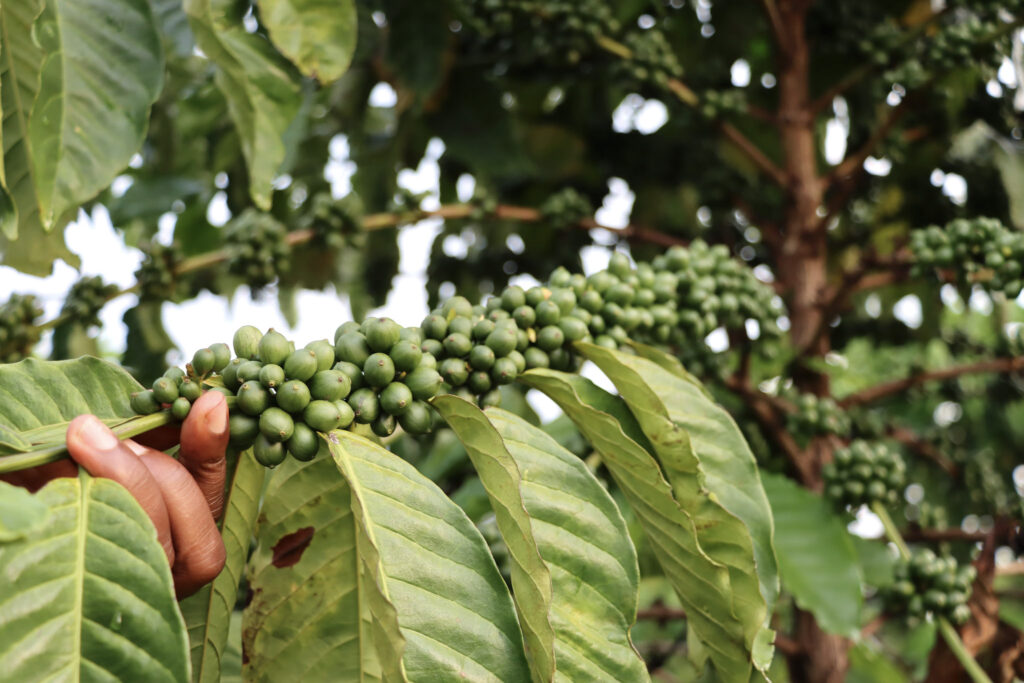
Formed in 2013 with 250 smallholder farmers as members, KAPCCO empowers farmers by raising awareness, ensuring access to reliable coffee markets, and providing extension services to promote resilient practices across the coffee value chain. Twelve years later, the organization has grown to 764 members, comprising 57% men and 43% women, with 60% youth.
KAPCCO has established six strategically located bulking centers, where farmers sell their pulped coffee and receive instant cash payments ranging from 17,000 to 18,000 Ugandan shillings (UGX) (U.S. $4.65 to $4.93) per kilogram.
By aggregating coffee from multiple farmers, KAPCCO strengthens their bargaining power and ensures access to both domestic and international markets. Locally, their coffee is sold to in-country offtakers, such as Agri Evolve, the National Union of Coffee Agribusinesses and Farm Enterprises (NUCAFE), and Clarke Farm, while globally, it reaches buyers such as Belco in France, Caffè River in Italy, and EFICO in Belgium.
“Born into a farming family and raised on coffee farms, I have seen firsthand the transformative opportunities that agriculture presents. That’s why the cooperative is working with the BRIGHT project to ensure that smallholder coffee farmers have access to markets, affordable financial services, and improved agricultural inputs so that they can thrive,” affirmed KAPCCO General Manager Davis Mibiiri.
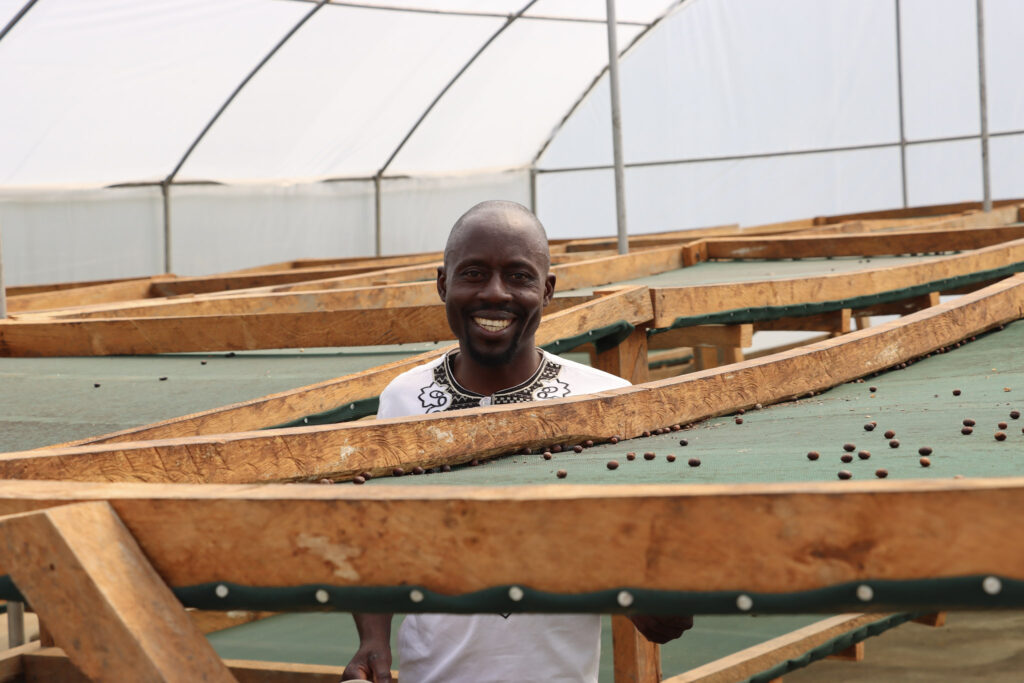
Mibiiri emphasized how the BRIGHT project has enabled farmers and cooperatives such as KAPCCO to participate in major trade shows and conferences, including the African Fine Coffees Conference and Exhibition and the Harvest Money Expo. These events foster knowledge exchange, market expansion, and profitability by providing opportunities to meet new buyers and acquire more international contracts.
Such support for market access has been effective: “Our clientele has expanded, and coffee sales have reached new highs. In 2024, we supplied 92,711 metric tons of coffee from 680 smallholder farmers, increasing our turnover from UGX 200 million (U.S. $54,729.80) in 2023 to UGX 915 million (U.S. $250,389). Our net profit also grew from UGX 53 million (U.S. $14,503.40) to UGX 84 million (U.S. $22,986.50). We anticipate even more sales and profits in 2025,” Mibiiri explained.
Nyakitokoli United Farmers Association has similarly benefited from agronomic support and market access, selling 11.5 metric tons of red cherry coffee to KAPCCO in 2024. The group received instant payment, using its profits to acquire additional assets, including land, and expand its agricultural activities.
The benefits of these achievements extend beyond the cooperatives; they improve household incomes and livelihoods for last-mile farmers. BRIGHT Project Lead of the Agriterra team Enock Nuwabine described the project’s profound impact, noting that it has empowered savings and credit cooperatives (SACCOs) as well as farmers’ cooperatives, making them bankable and equipping them to deliver effective services to small-scale farmers. As a result, farmers have experienced growth in household incomes and better financial stability.
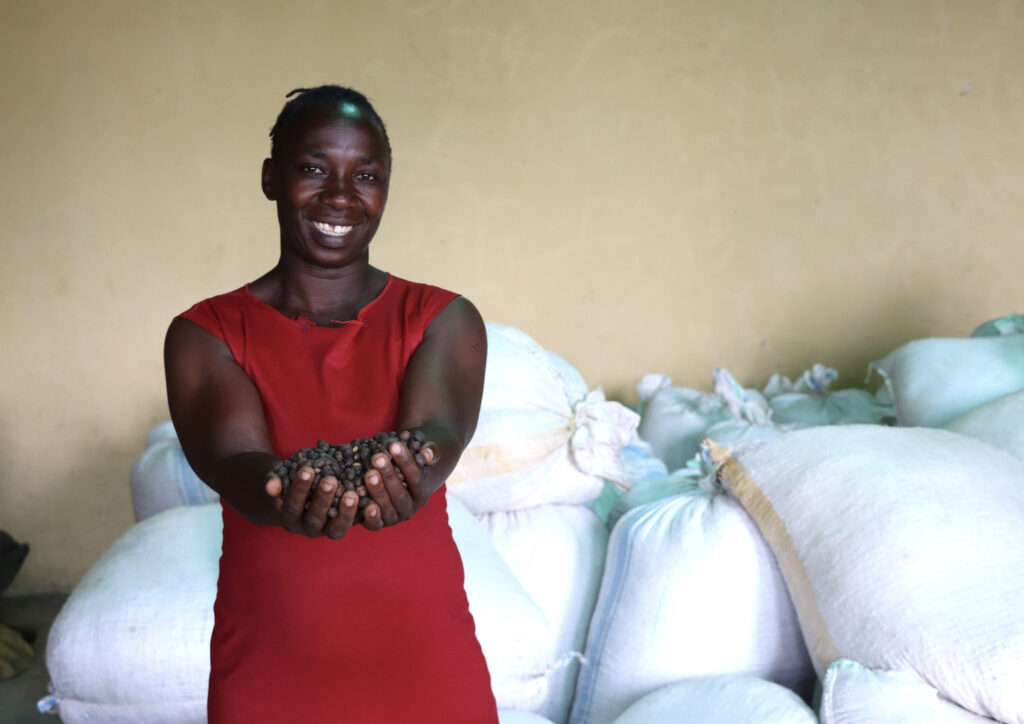
Gad Twinomujuni, a coffee farmer in Kabarole District, remarked on this progress, “Earning UGX 30 million (U.S. $8,209.47) from my first coffee harvest in 2024 was life-changing compared to my previous monthly income of UGX 150,000 (U.S. $41.05) as a truck driver. Coffee farming has proven more viable, and by following best practices that we were taught and selling through a cooperative rather than middlemen, I am confident in earning more profit and a sustainable income.”
Access to affordable and tailor-made financial services is crucial for cooperatives to scale up and reach bigger international markets while serving the best interests of farmers. Through partnerships with formal financial institutions, such as Hofokam Limited and Pearl Capital Partners, these organizations have enhanced cash flow, enabling timely coffee purchases from farmers and efficient deliveries to offtakers. The BRIGHT project is instrumental in connecting cooperatives with formal financial institutions and negotiating low-interest credit and flexible terms, thus supporting their growth and market expansion.
KAPCCO has benefited from this intervention, securing credit at a relatively low interest rate. These funds enable the cooperative to increase bulk sales, negotiate better prices, and boost profitability, while protecting smallholder farmers from buyers who purchase flowering coffee directly from the farm gate.
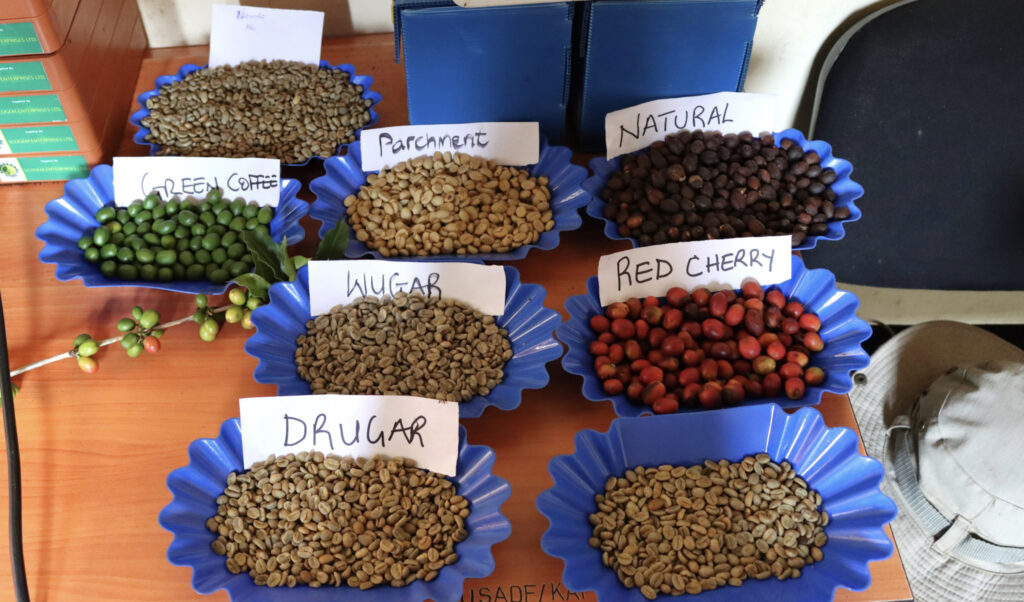
Through the BRIGHT project, IFDC and Agriterra are supporting five SACCOs and 10 farmers’ cooperatives, comprising 20,000 smallholder farmers in the Kigezi, Mount Elgon, and Rwenzori regions by facilitating access to affordable financial services and strengthening cooperative governance structures. The project facilitates market access, enhances business planning, and equips these organizations with essential skills in sustainable land use, agronomic best practices and techniques, and value addition, empowering farmers to build resilient and profitable agricultural enterprises.
BRIGHT’s interventions are helping farmers move beyond subsistence, enabling them to engage more competitively in the coffee value chain, increase their incomes, and secure greater stability for their households and communities.
The Building Resilience and Inclusive Growth of Highland farming systems for rural Transformation (BRIGHT) project is funded by the Embassy of the Kingdom of Netherlands in Uganda and implemented in partnership with Agriterra, the Uganda Ministry of Agriculture, Animal Industry and Fisheries (MAAIF), the National Agricultural Research Organization (NARO), district local governments, and private sector partners.




